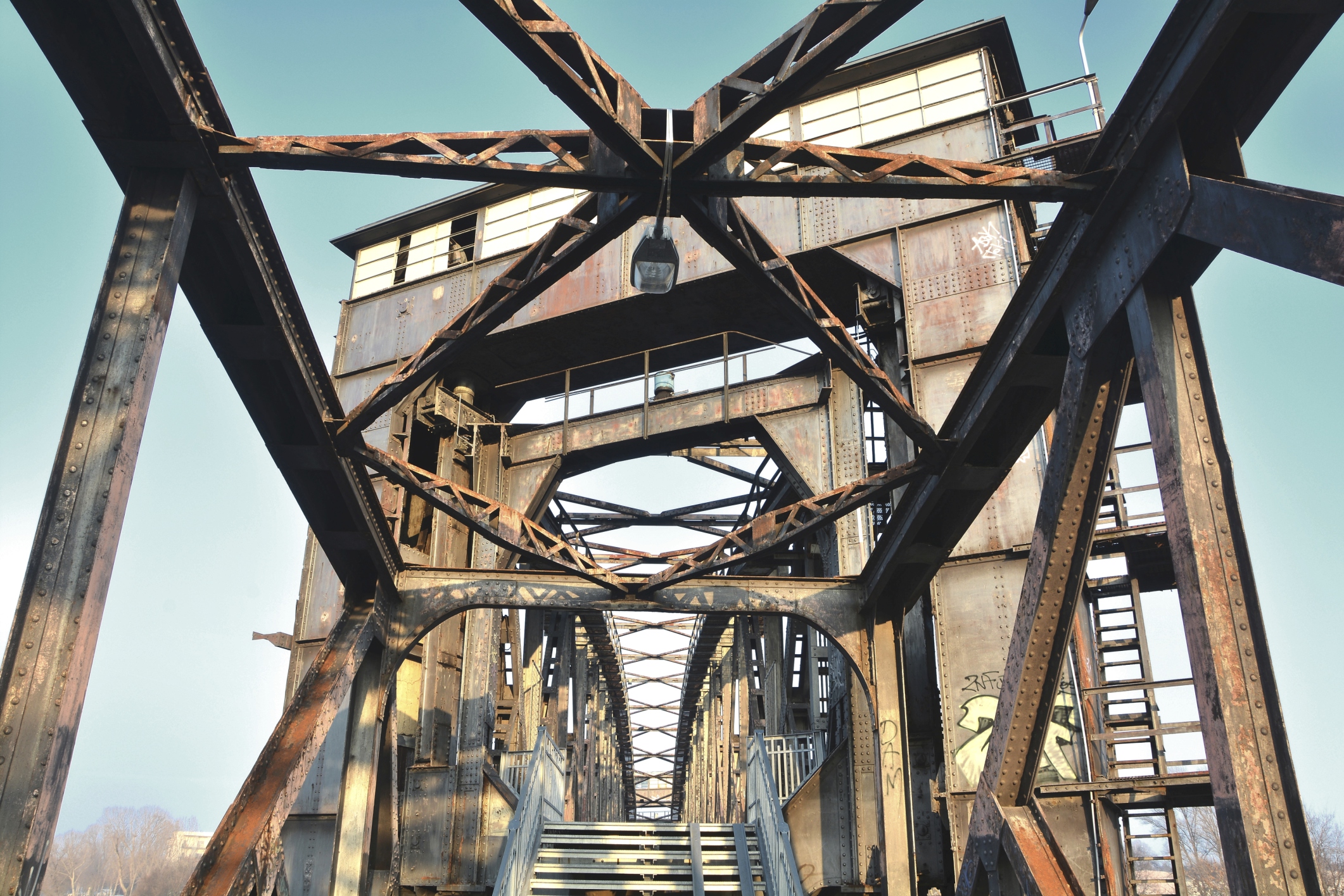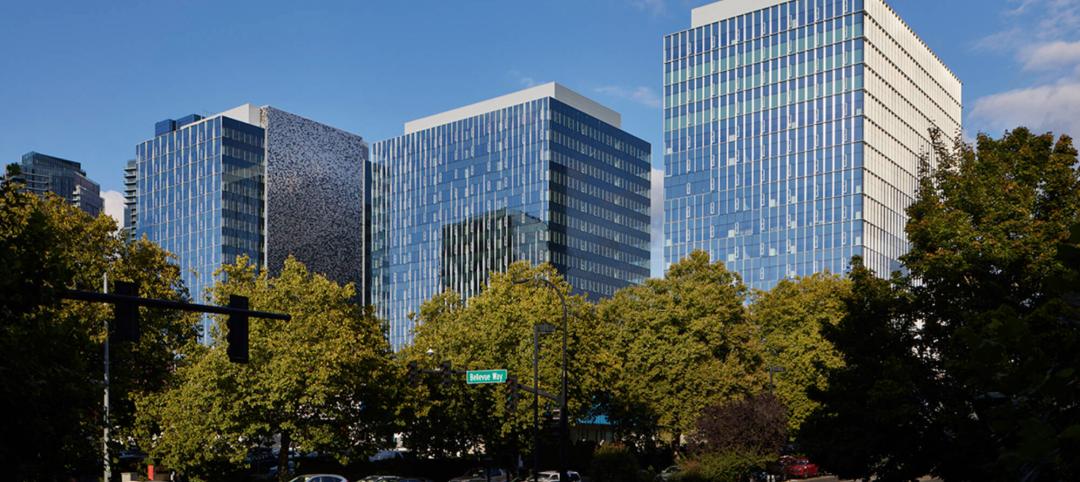At the National Press Club, a new report was released that outlines innovative new ways that the federal government, industry, and other stakeholders can work together to solve the crisis of the failing state of U.S. infrastructure.
Entitled "Making The Grade," the report is the result of experts from 45 different organizations, including corporations, professional organizations, think tanks, financial advisors, and academic institutions. It offers a six-point plan with fresh ideas to regain America's infrastructure leadership and revive the country’s global competitiveness.
The report's name is intended as a rallying cry in response to last year's quadrennial report card by the American Society of Civil Engineers (ASCE), which gave America's overall infrastructure a D+ grade. The ASCE estimates that US$3.6 trillion must be invested by 2020 to make critically needed upgrades and expansions of national infrastructure - and avoid trillions of dollars in lost business sales, exports, disposable income and GDP.
While much has been written and discussed about the problem, Making the Grade provides substantive recommendations and workable solutions to help meet today’s and tomorrow’s infrastructure needs.
The report's six-point recommendations include:
-
Making infrastructure a cabinet-level priority
-
Forming U.S. infrastructure regions
-
Establishing a national infrastructure bank
-
Selling "opportunity" bonds
-
Creating a national infrastructure index
-
Engaging the American people to build support for the importance of infrastructure policy
Collectively, these recommendations apply modern tools, technologies, approaches and fresh thinking to offer a new vision and path forward for the way U.S. infrastructure should be planned, financed, designed and built.
For the full report, please visit: http://autode.sk/MakingTheGrade
Commentary from Making The Grade Supporters
-
"Rebuilding America’s infrastructure should be our top economic priority: it’s essential to our national competitiveness, will help our businesses grow, and will create millions of much-needed middle class jobs. We absolutely cannot lose our global edge on infrastructure and the current trends are not headed in the right direction. As the Making the Grade report – composed by experts – makes clear, there are serious economic costs associated with our infrastructure gridlock. This is a domestic emergency. The good news is that there is strong bipartisan support for funding and financing infrastructure investment, provided we do it in a fiscally-responsible way. My bill, the Partnership to Build America Act, marries long-term goals from both parties: expanded infrastructure investment, tax reform, and more public-private partnerships. I’m proud to have my legislation highlighted in the report and I thank CG/LA and the other partners for raising awareness on this most vital issue.” -- John Delaney, Congressman, 6th District (D-Maryland)
-
"Rarely have I read a document in which the words more powerfully complement the purpose - this is a true blueprint for the work that will lead our country forward, creating real value now and for the next generation - by 'regaining' and 'sustaining' public infrastructure leadership." -- Norman Anderson, President and CEO, CG/LA Infrastructure
-
"Our infrastructure has fallen behind the rest of the world, threatening our economic vitality and even becoming a danger to our citizens. We can't rely on the same-old way of doing things. We need to bring a renewed spirit of innovation and purpose to this challenge. We believe the Making The Grade report provides the right framework, fresh ideas and infusion of energy needed to jumpstart this discussion and create action as a unified industry. We look forward to working closely between the private and public sector to start implementing our recommendations with all due haste." -- Terry D. Bennett, LS LPF MRICS ENV SP LEEDAP, Senior Industry Strategist for Infrastructure, Autodesk
-
“We not only must do better at building what we need, we need to do better in deciding what we need. The Making the Grade Report shows us a way forward in doing just that. This is not and cannot be just about us, about this generation and our needs. It must be about future generations and their options as well.” -- Bill Bertera, Executive Director, Institute for Sustainable Infrastructure
-
“We can’t solve today’s challenges, let alone tomorrow’s, with yesterday’s thinking. It’s well documented that our critical human infrastructure receives failing grades today and needs attention. Through a combination of new and integrated project delivery models and technical and financing innovation we have the ability to address the significant challenges we face. It will take true collaboration among government, industry, the private sector and the public, but investments in infrastructure will lead to strong returns. This work has been started with the Making the Grade report, and it must continue.” -- Ralph Eberts, Executive Vice President, Managing Director of Water, Americas, Black & Veatch
-
"The Making the Grade Report represents the forward looking thinking of nearly 50 companies and organizations. The six-point plan to support rebuilding America's infrastructure provides the necessary direction forward, showing the country how we can dramatically increase our investment through the kind of private and public initiatives that benefit all stakeholders." -- Andrés Gluski, President and CEO, AES Corporation
-
"Innovation in infrastructure requires long term effort and attention to the capabilities that must be developed among a coalition of stakeholders to achieve that goal. US infrastructure in particular is a 'wicked problem' - complex and open-ended - that requires a guiding framework and a high level of collaboration and originality for its resolution.” -- John Kao, fmr Harvard Business School Professor and Chairman, Institute for Large Scale Innovation
-
“21st century success depends on 21st century infrastructure. Making the Grade outlines a thoughtful, balanced and timely program for addressing this critical need.” -- Dr. James A. Moore, SVP/Director National Community Planning & Urban Design, HDR
-
“Infrastructure systems are the backbone of our economy and a critical part of our daily lives. While it’s tempting to assume that we should just address the largest funding gap first, it’s important to remember that all of our infrastructure is linked and each sector has a significant role to play. We need leadership from federal, state and local levels of government who will communicate the urgency of revitalizing our nation’s infrastructure, craft innovative solutions and make the investments the system needs so that the United States is competitive on a global level. Industry efforts like the Making the Grade Symposium and its report help head us in this direction.” -- Patrick Natale, P.E., F.ASCE, FASAE, CAE, Exec Director of American Society of Civil Engineers
Related Stories
AEC Tech Innovation | Oct 8, 2024
New ABC technology report examines how AI can enhance efficiency, innovation
The latest annual technology report from Associated Builders and Contractors delves into how artificial intelligence can enhance efficiency and innovation in the construction sector. The report includes a resource guide, a case study, insight papers, and an essay concerning applied uses for AI planning, development, and execution.
Healthcare Facilities | Oct 8, 2024
Herzog & de Meuron completes Switzerland’s largest children’s hospital
The new University Children’s Hospital Zurich features 114 rooftop patient rooms designed like wooden cottages with their own roofs. The project also includes a research and teaching facility.
Mixed-Use | Oct 7, 2024
New mixed-use tower by Studio Gang completes first phase of San Francisco waterfront redevelopment
Construction was recently completed on Verde, a new mixed-use tower along the San Francisco waterfront, marking the end of the first phase of the Mission Rock development. Verde is the fourth and final building of phase one of the 28-acre project that will be constructed in several phases guided by design principles developed by a design cohort led by Studio Gang.
Brick and Masonry | Oct 7, 2024
A journey through masonry reclad litigation
This blog post by Walter P Moore's Mallory Buckley, RRO, PE, BECxP + CxA+BE, and Bob Hancock, MBA, JD, of Munsch Hardt Kopf & Harr PC, explains the importance of documentation, correspondence between parties, and supporting the claims for a Plaintiff-party, while facilitating continuous use of the facility, on construction litigation projects.
Glass and Glazing | Oct 7, 2024
Pattern language: An exploration of digital printing on architectural glazing
Architectural Glazing has long been an important expressive tool which, when selected and detailed thoughtfully, can contribute to the successful transformation of architectural concepts to reality.
University Buildings | Oct 4, 2024
Renovations are raising higher education campuses to modern standards
AEC higher ed Giants report working on a variety of building types, from performing arts centers and libraries to business schools. Hybrid learning is seemingly here to stay. And where possible, these projects address wellness and mental health concerns.
AEC Tech | Oct 3, 2024
4 ways AI impacts building design beyond dramatic imagery
Kristen Forward, Design Technology Futures Leader, NBBJ, shows four ways the firm is using AI to generate value for its clients.
Laboratories | Oct 2, 2024
Trends in scientific research environments: Q&A with Flad's Matt McCord
As part of an ongoing series, Matt McCord, AIA, NCARB, LEED AP BD+C, Associate Principal with Flad Architects, discusses the future of the scientific workplace.
Museums | Oct 1, 2024
UT Dallas opens Morphosis-designed Crow Museum of Asian Art
In Richardson, Tex., the University of Texas at Dallas has opened a second location for the Crow Museum of Asian Art—the first of multiple buildings that will be part of a 12-acre cultural district. When completed, the arts and performance complex, called the Edith and Peter O’Donnell Jr. Athenaeum, will include two museums, a performance hall and music building, a grand plaza, and a dedicated parking structure on the Richardson campus.
Data Centers | Oct 1, 2024
10 biggest impacts to the data center market in 2024–2025
While AI sends the data center market into the stratosphere, the sector’s accelerated growth remains impacted by speed-to-market demands, supply chain issues, and design innovation necessities.

















